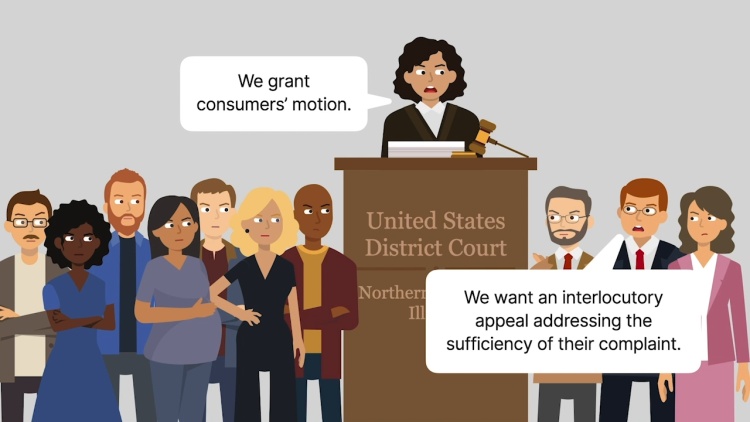In re Text Messaging Antitrust Litigation
United States Court of Appeals for the Seventh Circuit
630 F.3d 622 (2010)

- Written by Eric Cervone, LLM
Facts
A class-action suit was filed against the country’s major wireless phone carriers (carriers) (defendants), accusing them of conspiring to fix text-messaging prices in violation of federal antitrust law. The second amended complaint pointed to parallel conduct as well as the industry’s structure and practices to demonstrate a likelihood of collusion. The carriers believed that the complaint failed to satisfy the Twombly pleading standard and should therefore be dismissed. The carriers asked the district court to certify an interlocutory appeal to determine the complaint’s adequacy. The district court agreed, noting that the Twombly standard was relatively new, and concluding that reasonable minds could differ as to how the standard would apply in this context. Also, if it was decided that the present complaint failed to meet the Twombly standard, then dismissal would be required unless the class members (plaintiffs) presented additional facts supporting their argument. It therefore made sense to decide the potentially dispositive Twombly question at this stage, before the parties engaged in burdensome discovery. For the interlocutory appeal to be heard, the United States Court of Appeals for the Seventh Circuit also had to grant permission. The question was thus brought before the Seventh Circuit.
Rule of Law
Issue
Holding and Reasoning (Posner, J.)
What to do next…
Here's why 907,000 law students have relied on our case briefs:
- Written by law professors and practitioners, not other law students. 47,100 briefs, keyed to 996 casebooks. Top-notch customer support.
- The right amount of information, includes the facts, issues, rule of law, holding and reasoning, and any concurrences and dissents.
- Access in your classes, works on your mobile and tablet. Massive library of related video lessons and high quality multiple-choice questions.
- Easy to use, uniform format for every case brief. Written in plain English, not in legalese. Our briefs summarize and simplify; they don’t just repeat the court’s language.





